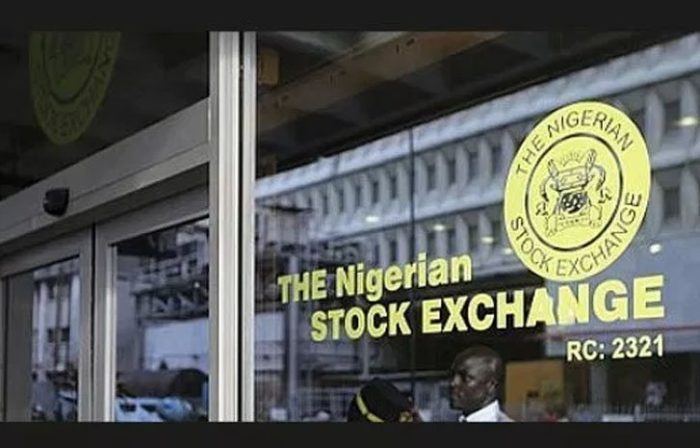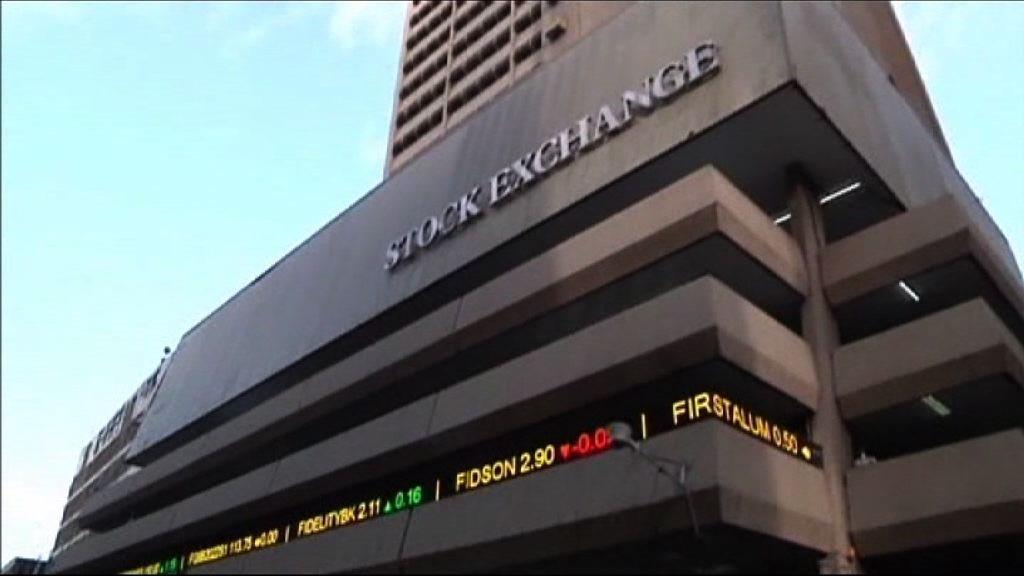- Seeks to reposition market
By ODUNEWU SEGUN
NIGERIA’S Stock Exchange’s CEO, Oscar Onyema may not be in the best of times lately. The reason isn’t hard to see: the NSE is one of the sick exchanges in Africa.
Onyema, elected in 2011, and now in his second term had self-imposed a $ trillion market capitalization. However, the ambition seems far-fetched now with trading on the floor now tanking, and profits dipping further into the negative at minus 11.7 per cent.
The Nigerian Stock Exchange which opened this year with market value of N9.850 trillion has lost about N1.2 trillion year-to-date evidenced in recent value of N8.704 trillion.
National Daily analysis showed that with less than three weeks to the end of 2016, market capitalisation is at N8.715trillion ($27.3billion) a mere 2.73 percent achievement against the targeted $1trillion (N400trillion) market-value target at the current conservative rate of N400/$. This is against N10trillion market capitalisation that he inherited in 2011. The year-to-date (Ytd) returns of the Nigerian bourse are in negative at 11.6 percent.
Indeed, as at last six years, the market recorded 93.33billion units of shares in volume of trades; value of trades were N797.55billion; and combined value of equities and fixed income market was put at about N10trillion equities (N6.3trillion), and fixed income (N3.7trillion). Nigerian stock market posted N633.93billion month-to-date (MtD) loss as sentiments remain bearish.
According to experts, NSE performances over the years has never been encouraging. Under Onyema’s watch, between 2011 and 2015, there have been 105 Initial Public Offerings (IPOs) by African African companies on both African and international exchanges and non-African companies in African exchanges, raising $6.1 billion. Nigeria missed out on many of these deals.
Yet, the Johannesburg Stock Exchange (JSE), market capitalisation has risen remarkably to $406.9billion on increased Initial Public Offerings (IPOs). Also, Kenya’s Nairobi Stock Exchange (NSE) market capitalisation has risen to $19.3billion. Historically, the Egypt Stock Market value has risen to $33.2billion and has yielded returns of about 61percent in 2016. Morocco which has about $51.5billion in market capitalization has also yielded a return of 17.7percent.
From National Daily findings, however, some analysts have identified some challenges ranging from widening golf in Naira exchange rate, the fall in crude oil price, and uncertainties resulting from Nigeria’s disappointing macroeconomic indices have caused remarkable selloff in the market, putting a stop to the trillion dollar market-value target. Others believe that the target was simply over ambitious without considering the dynamic operating environment.
But Onyema is not sitting down watching his lofty dreams disintegrate. The NSE management under him has made moves to reposition the market. The plan in 2016 was to demutualize, monetize market service and establish derivatives markets.
“We believe that taking a portfolio approach to investing provides the best risk adjusted alternative for participating in the capital market. As such, we want to ensure that the NSE provides a repertoire of products that will allow investors to create well diversified portfolios of uncorrected asset classes,” Onyema had disclosed earlier this year.
But the forces Onyema is up against appear stronger for now because foreign investors who are major buyers in the over $27.3 billion-valued equities at the NSE have continued to remain on the sidelines due to challenges at the forex market.
“Generally, foreign portfolio investors continue to remain on the sidelines. Relatively better participation was observed in fixed income compared with the equities market”, Gregory Kronsten-led team of analysts at FBN Quest said in their recent note.
The analysts observed that activities of both the market’s biggest buyers (foreigners) and that of domestic investors are decreasing; however the foreign activity is decreasing faster.
Nigeria’s stock market records show that total transactions at the bourse decreased further by 19.49 percent from N117.71 billion recorded in August 2016 to N94.77 billion (about $310million) in September 2016.
Also, total transactions from January to September 2016 decreased significantly by 40.59 percent from N1.560trillion recorded within the same period in 2015 to N927.08 billion in 2016.
Bismarck Rewane, MD/CEO, Financial Derivative Company while examining the markets at the recent Lagos Business School (LBS) executive breakfast meeting noted that the market is bedeviled by weak corporate earnings and surprising losses, adding that this is driven by switching and portfolio rotation to fixed income securities. “Weak corporate earnings will persist and suppress the stock market,” he said.

 Football5 days ago
Football5 days ago
 Aviation1 week ago
Aviation1 week ago
 Aviation6 days ago
Aviation6 days ago
 Featured3 days ago
Featured3 days ago
 Comments and Issues5 days ago
Comments and Issues5 days ago
 Education4 days ago
Education4 days ago
 Business4 days ago
Business4 days ago
 Education6 days ago
Education6 days ago



